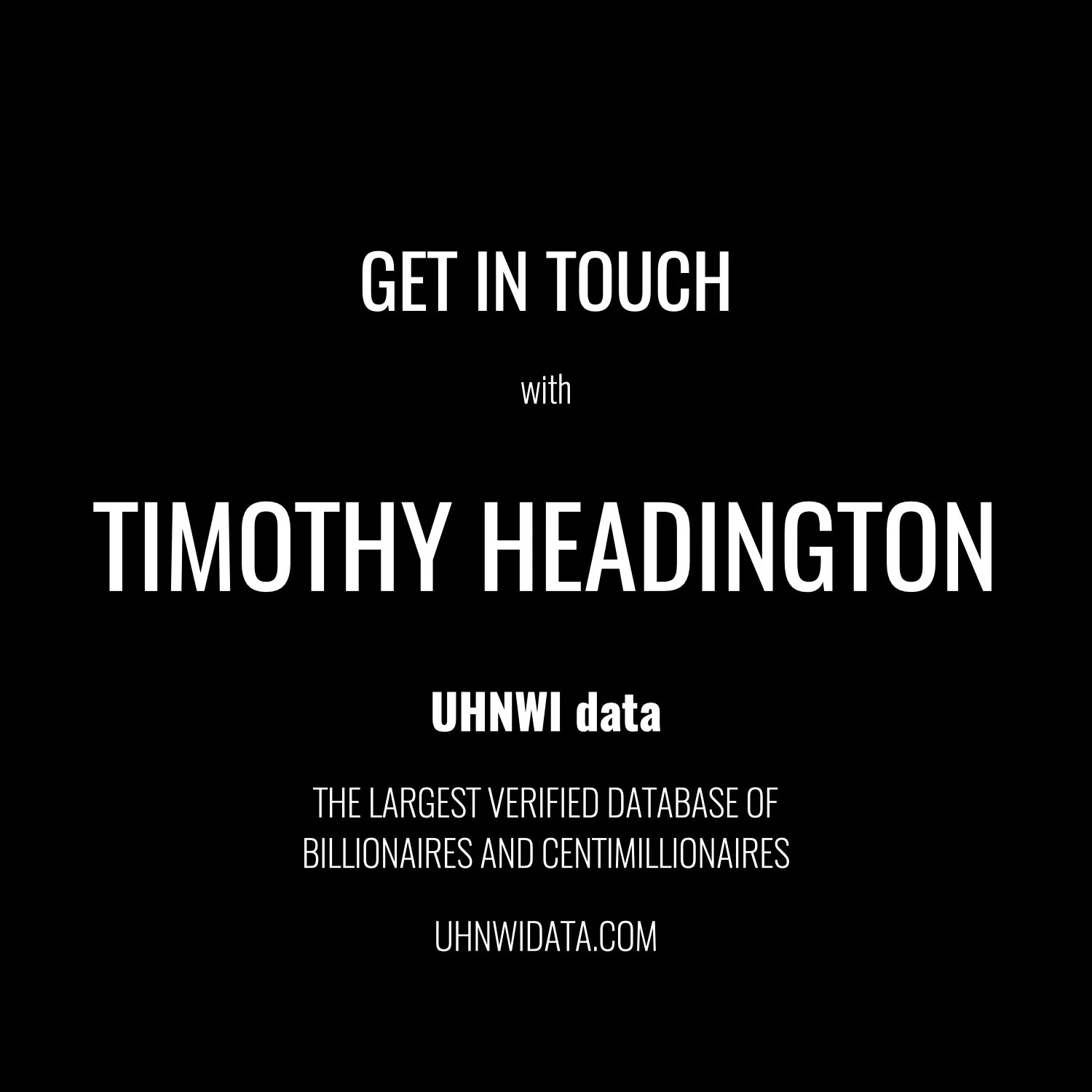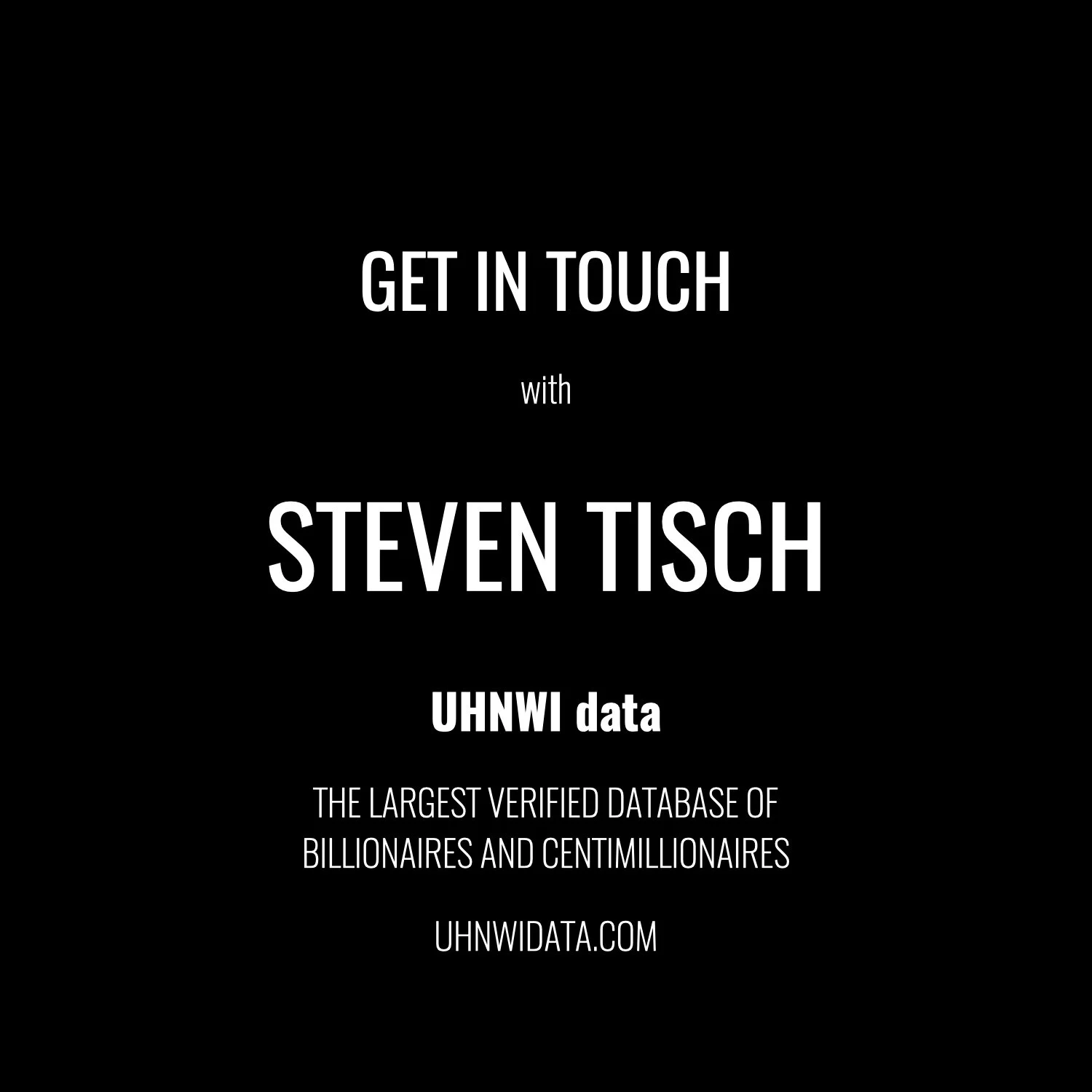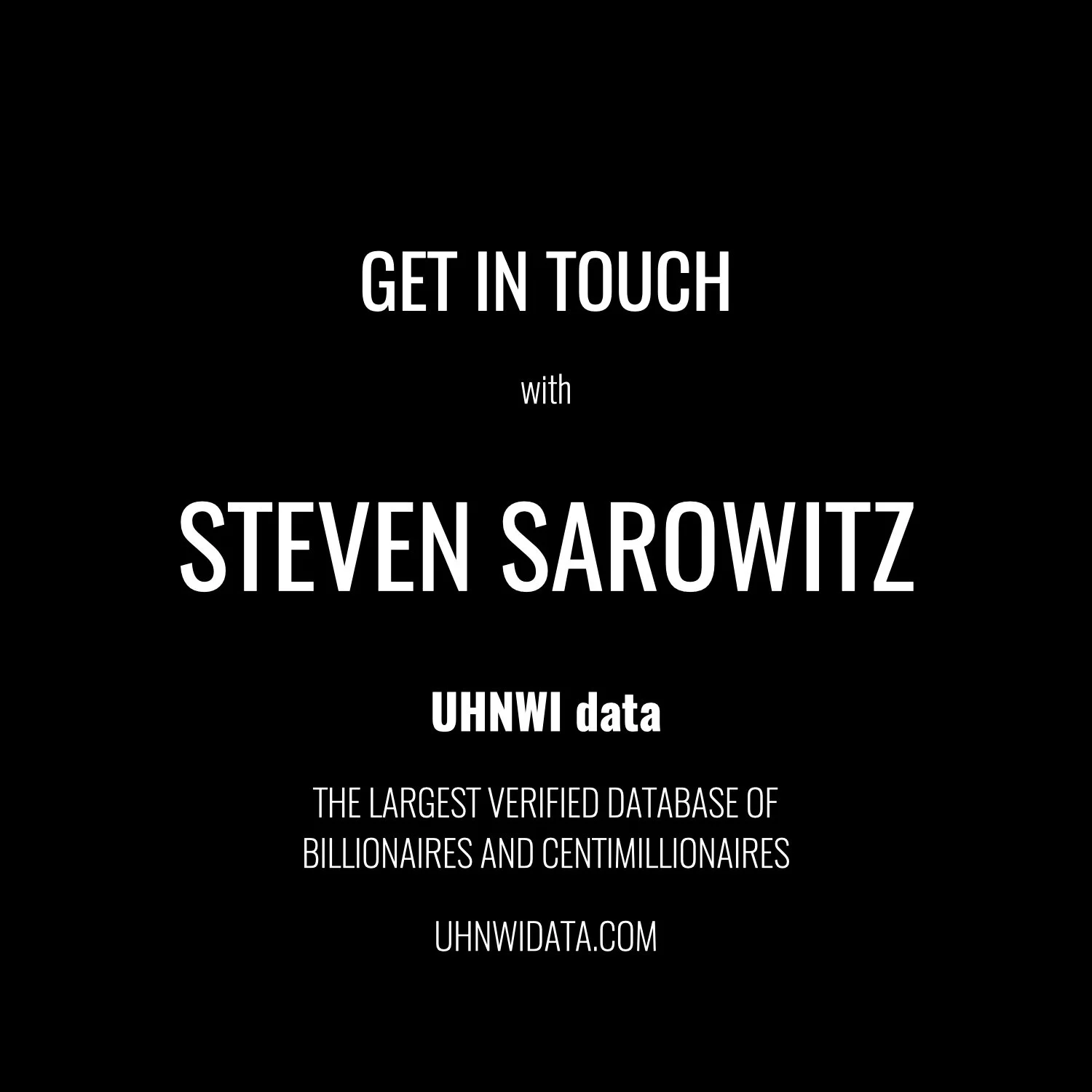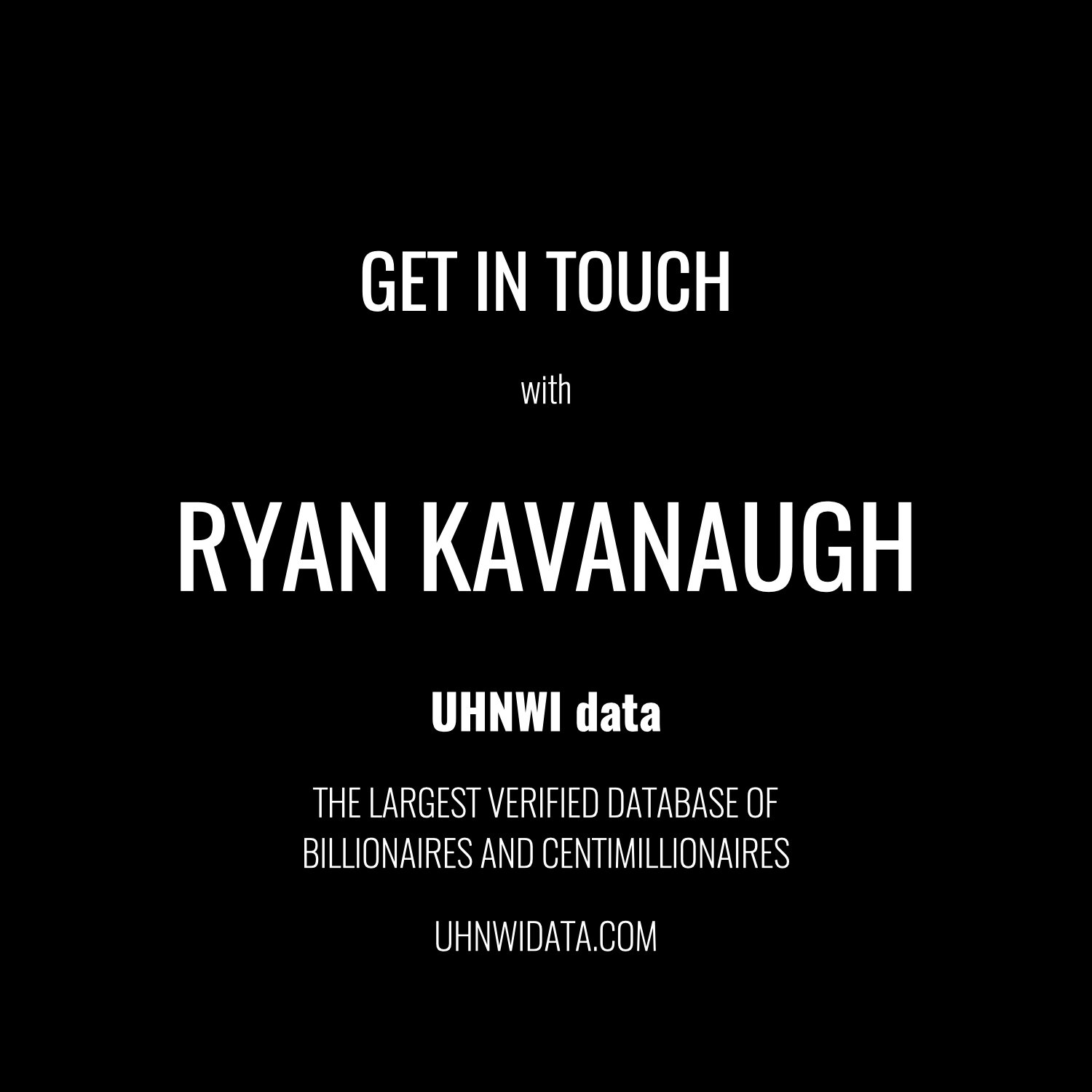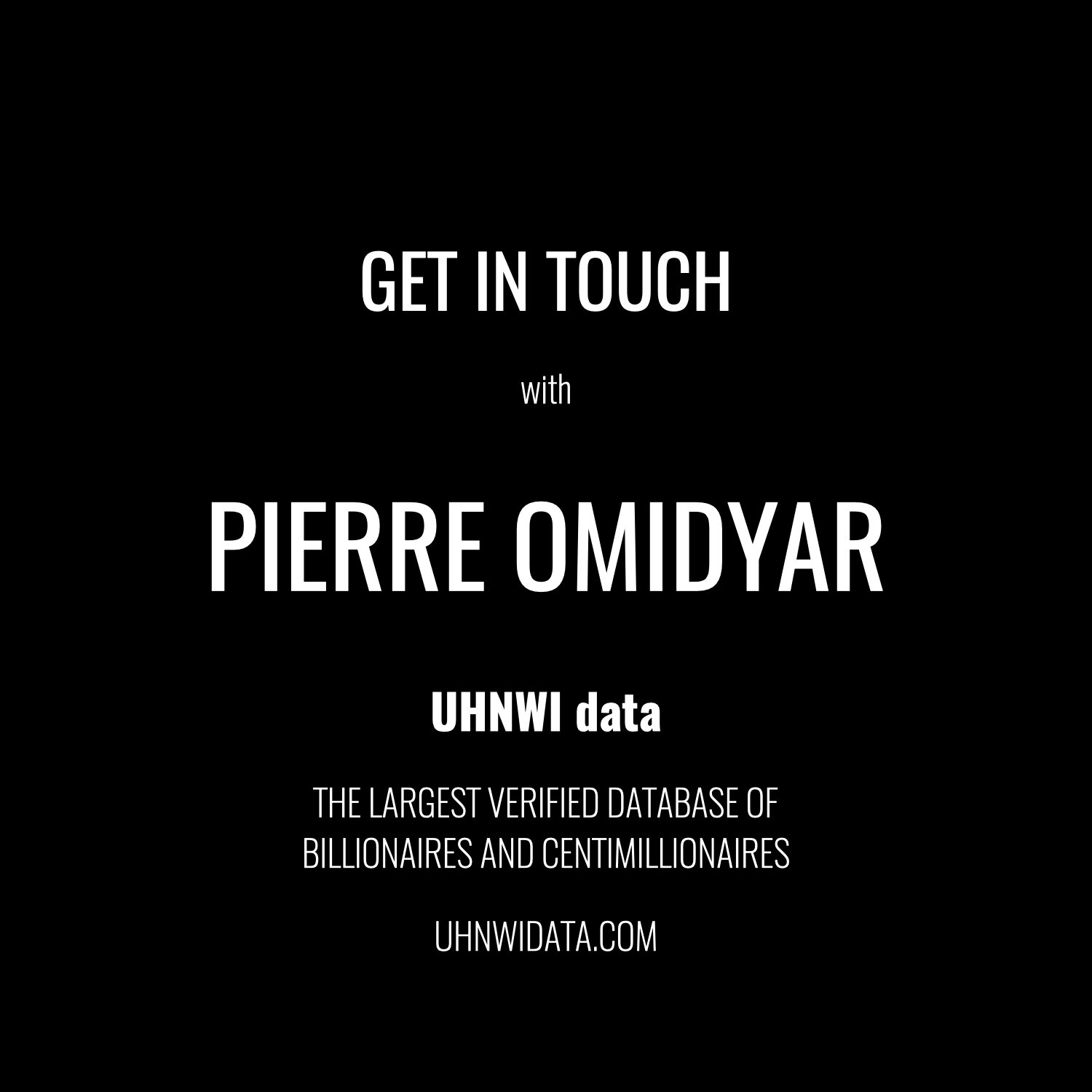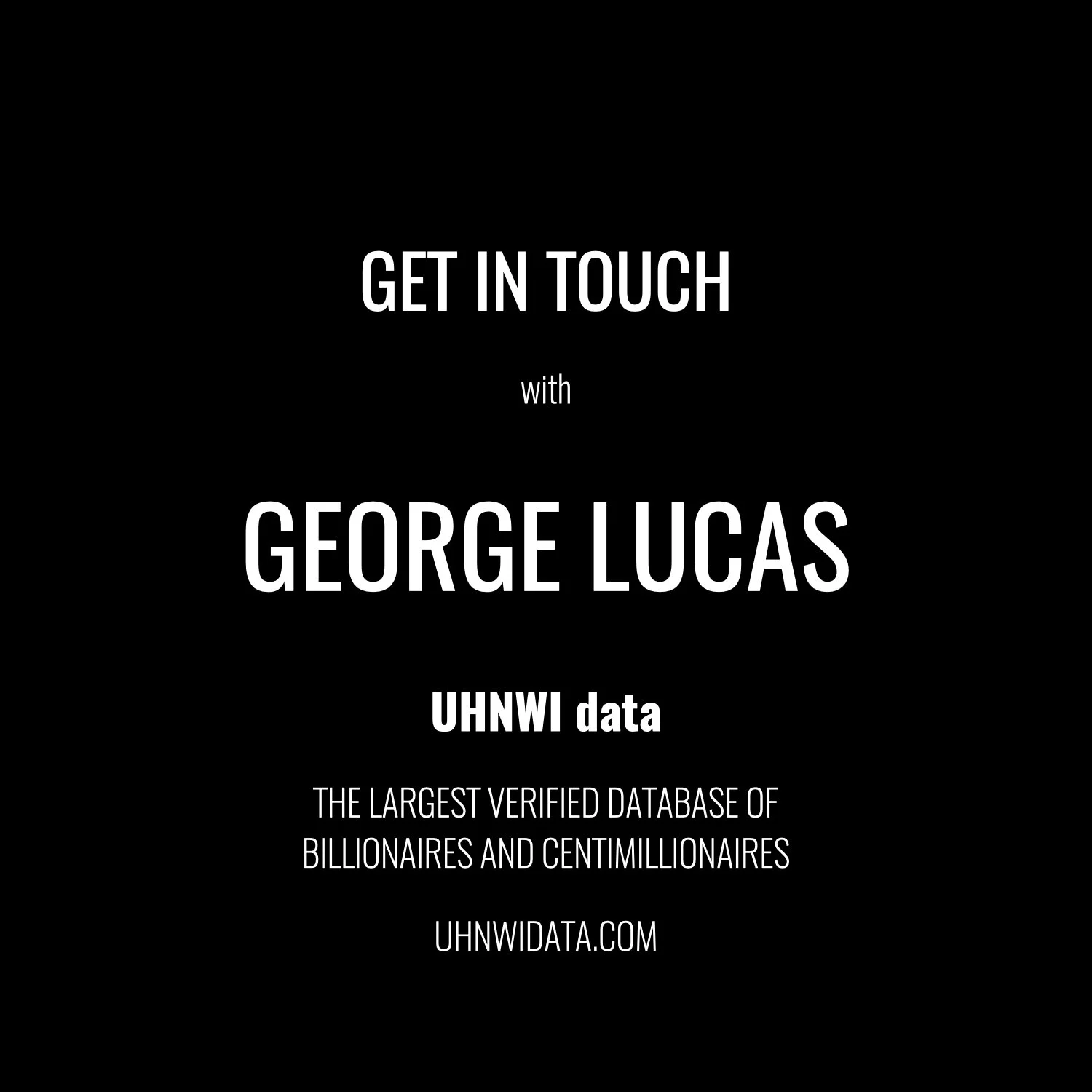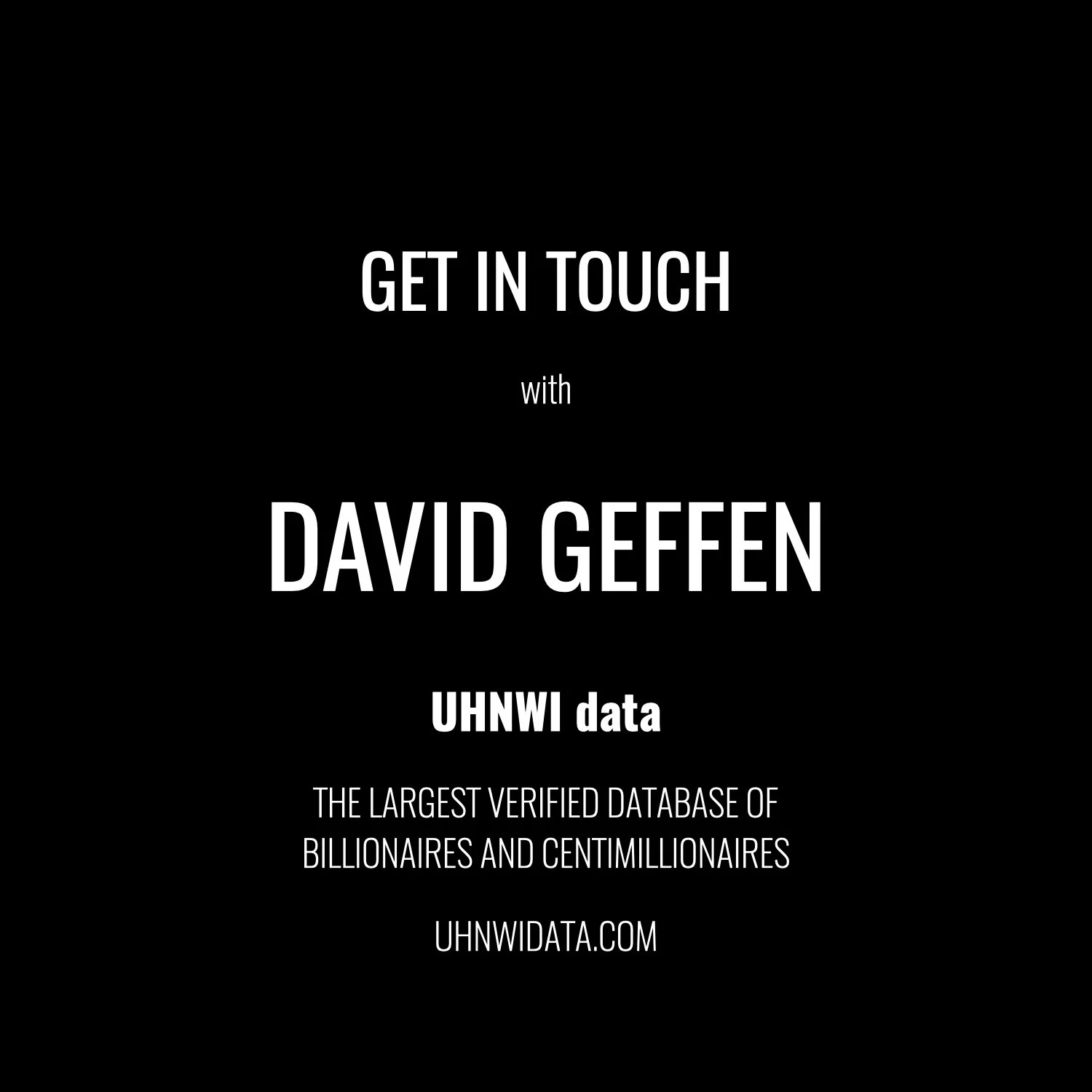Jeffrey Skoll (born January 16, 1965) is a Canadian-American billionaire entrepreneur and philanthropist who served as the first full-time employee and president of eBay from 1996 to 2001, helping to develop its initial business plan and guide its path to a successful initial public offering in 1998.[1][2] Born in Montreal and raised in Toronto, Skoll earned a bachelor's degree in electrical engineering from the University of Toronto, worked early jobs including pumping gas to fund his studies, and later obtained an MBA from Stanford Graduate School of Business in 1995 before joining eBay shortly after its founding.[2][3] His eBay tenure yielded substantial wealth from stock options, contributing to an estimated net worth of $5.5 billion as of October 2025, primarily from early-stage investments and eBay holdings.[2]
Following his departure from eBay, Skoll founded the Skoll Foundation in 1999 to support social entrepreneurs addressing systemic challenges such as poverty, climate change, and health disparities through catalytic investments and awards like the annual Skoll Awards for Social Entrepreneurship.[4] The foundation has invested in hundreds of organizations worldwide, emphasizing scalable solutions driven by individual innovators rather than top-down institutional approaches.[5] In 2004, Skoll established Participant Media, a production company aimed at creating commercially viable films and documentaries to drive social impact, backing projects including An Inconvenient Truth (2006) and Oscar winners like Spotlight (2015); however, the venture ceased operations in 2024 after sustaining significant financial losses amid shifting Hollywood economics.[6][7] Skoll has also chaired the Capricorn Investment Group, focusing on impact-driven ventures in renewable energy and technology.[1]
Skoll's philanthropy extends to the Skoll Global Threats Fund, targeting existential risks like nuclear proliferation and pandemics through targeted funding and advocacy.[8] While his initiatives have garnered praise for fostering entrepreneurial responses to global issues, they have drawn scrutiny for concentrating influence in the hands of private wealth, potentially sidelining broader democratic processes in addressing societal problems.[9] In recent years, Skoll has publicly shared his diagnosis of chronic lymphocytic leukemia linked to Epstein-Barr virus, pursuing treatments involving experts and AI-assisted analysis.[10]
Early Life and Education
Family Background and Upbringing
Jeffrey Skoll was born in January 1965 in Montreal, Quebec, Canada, to a middle-class Jewish family.[11][12] His mother worked as a teacher, while his father owned a chemical company that sold industrial chemicals.[13] The family relocated to Toronto, Ontario, when Skoll was approximately 13 or 14 years old, where his father continued to operate a business.[11][12]
Skoll's upbringing in Toronto emphasized self-reliance, as he later worked pumping gas to fund his education.[2] He was an avid reader from a young age, drawing significant influence from serious literature, including works by authors such as Ayn Rand and James Michener, which shaped his early worldview and ambitions.[12][3] At around age 14, following the move, Skoll aspired to become a writer, reflecting an early creative bent amid his family's entrepreneurial environment.[14]
The family's circumstances included challenges, such as his father's diagnosis with kidney cancer a few years before Skoll entered university, which may have underscored themes of resilience in his formative years.[15] Skoll resided in Toronto until age 28, during which time his exposure to business through his father's company likely contributed to his later career trajectory in technology and entrepreneurship.[12]
Academic and Early Professional Experiences
Skoll earned a Bachelor of Applied Science degree in electrical engineering from the University of Toronto in 1987.[16][2] During his undergraduate studies, he co-edited a campus humor magazine, demonstrating early interest in creative expression alongside technical pursuits.[13]
Following graduation, Skoll launched an engineering consulting firm and operated a computer rental business named "Micros on the Move," reflecting his entrepreneurial inclinations in the late 1980s and early 1990s.[12] These ventures provided practical experience in technology and business operations before he pursued advanced management education.
In 1993, Skoll relocated to the United States to attend Stanford Graduate School of Business, from which he received a Master of Business Administration in 1995.[2][1] Immediately after, he joined Knight-Ridder Information in San Jose as manager of distribution channels, focusing on information management for newspaper properties such as the San Jose Mercury News.[12] This role honed his strategic skills in media and technology distribution, bridging his engineering background with emerging digital opportunities.
eBay Career
Initial Involvement and Founding Contributions
Jeffrey Skoll joined eBay in 1995 as its first full-time employee and inaugural president, shortly after founder Pierre Omidyar launched the platform on September 3, 1995, initially as a part-time venture.[17][2] Fresh from earning an MBA at Stanford University, Skoll transitioned from consulting work to help operationalize the nascent online auction site, which had begun as a simple mechanism for Omidyar to facilitate a personal sale of a used laser pointer.[18] His recruitment marked a pivotal shift from Omidyar's solo efforts to a structured leadership team, enabling eBay to scale beyond its hobbyist origins.[17]
In his role as president from 1996 to 1998, Skoll focused on backend infrastructure, authoring the company's first formal business plan to outline scalable operations and revenue models amid exponential user growth.[15] He directed hiring initiatives to build teams capable of handling surging transaction volumes, which rose from thousands to millions of listings annually, while implementing systems for fraud prevention and payment processing that stabilized the marketplace.[15] These efforts professionalized eBay's auction format, transforming it from an experimental website into a viable commercial entity by emphasizing trust mechanisms like user feedback ratings, which fostered repeat engagement and network effects essential to its early traction.[18]
Skoll's contributions extended to strategic foresight, such as advocating for international expansion and category diversification beyond collectibles, laying groundwork for eBay's pre-IPO valuation surge.[2] By prioritizing operational efficiency over Omidyar's technical innovations, he complemented the founder's vision, helping eBay achieve profitability thresholds that attracted venture capital and paved the way for its 1998 public offering, where Skoll's equity stake realized substantial value.[18][15]
Presidency and Company Expansion
Jeffrey Skoll joined eBay as its first full-time employee and president in early 1996, shortly after the platform had expanded into a million-dollar business from its origins as Pierre Omidyar's part-time project.[19] In this capacity, he authored the company's foundational business plan, projecting five-year growth targets that eBay met within its second year of full operations, while overseeing backend infrastructure, financial management, and recruitment to accommodate surging user adoption.[12] [15]
During Skoll's presidency through 1998, eBay transitioned from a niche auction site to a scalable marketplace, with gross merchandise volume reaching about $7.2 million by the end of 1996 and user registrations climbing into the hundreds of thousands amid the dot-com boom's early momentum.[20] He directed preparations for the firm's initial public offering on September 24, 1998, which raised $63.5 million and propelled eBay's market capitalization beyond $2 billion on the first trading day, establishing it as a cornerstone of online commerce.[21] Skoll's strategic focus on operational efficiency and scalability enabled eBay to handle exponential transaction volumes without major disruptions, though the company remained primarily U.S.-centric during this period.[11]
Skoll relinquished the presidency in March 1998 to Meg Whitman, who assumed the CEO role amid the IPO preparations, but he continued as vice chairman and a significant shareholder until departing fully in 2001.[3] [2] His tenure laid the groundwork for eBay's sustained expansion, including early international forays post-IPO, by prioritizing robust systems over speculative features.[22]
Philanthropy and Social Impact Efforts
Establishment of the Skoll Foundation
Jeffrey Skoll founded the Skoll Foundation in 1999, leveraging the wealth accumulated from eBay's initial public offering the previous year, which valued his equity stake at hundreds of millions of dollars.[4] The organization's inception built on Skoll's earlier involvement in corporate philanthropy, including his role in pioneering the eBay Foundation during his tenure as the company's president from 1996 to 1998.[1] Headquartered in Palo Alto, California, the foundation was initially structured to channel Skoll's resources toward innovative solutions for global problems, with an emphasis on empowering individuals and organizations capable of achieving scalable impact.[23]
From its establishment, the Skoll Foundation prioritized social entrepreneurship as its core mission, providing grants, awards, and support to leaders tackling issues such as poverty, health, and environmental degradation through market-oriented and systems-changing approaches.[24] Skoll's vision, informed by his eBay experience in fostering decentralized networks, sought to identify and amplify "change agents" whose models could replicate successes akin to eBay's platform dynamics on a societal scale.[4] Early operations included partnerships with entities like the Community Foundation Silicon Valley to manage initial endowments and program development, reflecting a deliberate shift from Skoll's for-profit background to structured giving aimed at sustainable prosperity and peace.[23] By focusing on evidence-based interventions rather than traditional charity, the foundation differentiated itself, committing resources to ventures with measurable potential for replication and influence beyond direct aid.[25]
Focus on Impact Investing and Global Initiatives
Skoll's engagement with impact investing intensified through the Skoll Foundation, which he founded in 1999 to channel resources toward social entrepreneurs tackling entrenched global problems including poverty alleviation, public health crises, and environmental degradation. The foundation deploys a mix of grants and direct investments aimed at scaling innovative solutions, prioritizing ventures with measurable potential for systemic disruption over traditional charitable giving. By 2024, these efforts had distributed over $935 million in funding to more than 165 social entrepreneur-led organizations operating across multiple continents.[26]
A cornerstone of this strategy is the Skoll Award for Social Entrepreneurship, launched in 2005, which provides recipients with $1.5 million over three years to amplify their operations, alongside networking opportunities within a global cohort of change agents. Investments target high-leverage interventions, such as ecosystem-level collaborations to address root causes like institutional barriers in developing economies, rather than symptomatic relief. For instance, the foundation has backed initiatives in global health and human rights, including support for forums convening defenders against authoritarian pressures.[27][5][28]
Under the umbrella of the Jeff Skoll Group, established to coordinate his broader philanthropic portfolio, Skoll has pursued global initiatives emphasizing peace, prosperity, and sustainability, with assets exceeding $800 million by 2023 enabling sustained capital deployment into undercapitalized sectors. These include program-related investments in education access for impoverished children and poverty mitigation, which historically accounted for a significant portion of disbursements. The approach underscores a venture-like model, evaluating returns not solely on financial metrics but on verifiable social outcomes, though long-term causal impacts remain subject to empirical scrutiny amid varying grantee success rates.[29][30][31]
Media and Entertainment Ventures
Founding of Participant Media
Jeffrey Skoll established Participant Media in 2004, leveraging proceeds from his tenure as eBay's first president to launch a production company dedicated to entertainment that addresses social issues.[32] The venture originated from Skoll's recognition of film's potential to illuminate global challenges and spur public engagement, extending his philanthropic focus on systemic change beyond traditional grants.[12] Initially named Participant Productions, the company aimed to blend commercial viability with content that provokes thought on topics like environmental degradation and human rights, reflecting Skoll's view that narrative-driven media could catalyze real-world action more effectively than direct advocacy alone.[33]
Skoll's founding vision emphasized "a good story, well told, can change the world," prioritizing projects that combine artistic merit with issue-oriented themes to reach broad audiences without overt didacticism.[34] He personally financed the startup, committing substantial resources from his eBay-derived fortune—estimated at over $1 billion by the mid-2000s—to underwrite development and distribution, enabling independence from studio constraints that often dilute socially provocative material.[32] This self-funded model allowed Participant to pursue high-risk scripts and documentaries from inception, targeting not just box-office returns but measurable shifts in public discourse and policy awareness, as gauged through post-release campaigns and partnerships with advocacy groups.[33]
Early operations centered in Los Angeles, where Skoll recruited talent wary of "message movies" but drawn to his commitment to narrative integrity over propaganda.[12] The company's structure integrated production with impact strategies, such as audience mobilization tools, to amplify films' influence beyond theaters—foreshadowing a hybrid model that sought profitability while advancing Skoll's causal belief in media as a lever for behavioral and institutional reform.[35] By 2006, this approach yielded early successes like the climate documentary An Inconvenient Truth, validating the founding premise amid skepticism from Hollywood traditionalists who prioritized entertainment over enlightenment.[12]
Production Output and Commercial Performance
Participant Media, founded by Jeffrey Skoll in 2004, produced 135 titles over two decades, comprising feature films, documentaries (accounting for approximately half of the output), and five television series, with a mandate to create content addressing social issues such as inequality, environmental challenges, and human rights.[36] Early productions included Syriana (2005), which earned George Clooney an Academy Award for Best Supporting Actor, and An Inconvenient Truth (2006), Al Gore's documentary on climate change that won an Oscar for Best Documentary Feature. Subsequent notable releases encompassed Charlie Wilson's War (2007), grossing $66.7 million domestically; Lincoln (2012) and The Help (2011), both directed by high-profile filmmakers; Spotlight (2015), recipient of the Best Picture Oscar; Green Book (2018), another Best Picture winner; Roma (2018), which secured three Oscars including Best Director for Alfonso Cuarón; and Wonder (2017), the company's highest-grossing film worldwide.[37][6]
The portfolio's commercial performance included aggregate worldwide box office earnings exceeding $3.3 billion across its releases, alongside critical acclaim evidenced by 21 Academy Awards and 18 Emmy Awards.[38][6] Individual successes like Wonder and Green Book contributed significantly to these totals, demonstrating viability for select socially themed narratives in mainstream markets. However, the company's model prioritized impact over pure profitability, often treating financial shortfalls on individual projects as offset by broader societal influence, as articulated by executives who deemed certain money-losing films "profitable" in non-monetary terms.[32]
Financially, Participant operated at a persistent loss, subsidized by Skoll's direct investments estimated in the hundreds of millions of dollars since inception, reflecting its alignment with philanthropic goals rather than conventional returns.[32] Analyses indicate few, if any, films achieved net profitability after the early years, with overall losses potentially reaching $500 million, contributing to the decision to shutter operations in April 2024 amid unsuccessful sale attempts and a shifting Hollywood landscape favoring franchise-driven content over issue-oriented independents.[39][40] This outcome underscores the tension between commercial imperatives and mission-driven production, where box office aggregates masked underlying unprofitability.[41]
Closure and Post-Shutdown Analysis
On April 16, 2024, Participant Media ceased operations after 20 years, with founder Jeffrey Skoll announcing the closure in a memo to approximately 100 employees.[7][6] Skoll described the decision as not taken lightly, citing economic headwinds and revolutionary shifts in content creation and distribution as contributing factors, though he did not provide detailed financial disclosures.[42] The company had attempted to sell itself in the preceding period but failed to attract buyers, despite Skoll's prior willingness to subsidize unprofitable "socially conscious" projects.[41]
Post-shutdown, the studio's film and television library—encompassing over 170 titles, including Oscar winners such as Spotlight (2015) and Green Book (2018)—remained intact but without ongoing production support, potentially complicating licensing and distribution in a streaming-dominated market.[6][34] By June 2025, roughly one year after the closure, many former executives had secured prominent roles elsewhere in Hollywood, indicating a resilient talent pool amid broader industry layoffs, though the event exacerbated challenges for the documentary sector, which relied on Participant for funding issue-driven films.[43][44]
Analyses of the shutdown highlighted structural mismatches between Participant's mission-driven model and evolving industry dynamics: while initially differentiated by its focus on "purposeful storytelling," the model became less viable as mainstream studios increasingly incorporated social messaging into commercial fare, diluting demand for specialized financing.[45][46] Critics noted that Skoll's emphasis on non-financial returns—evident in consistent operating losses—ultimately constrained scalability in a capital-intensive sector prioritizing profitability amid post-pandemic revenue declines and fragmented audiences.[34][41] The closure underscored broader risks in philanthropy-backed media ventures, where ideological commitments may conflict with market realities, as evidenced by the absence of viable acquirers despite the company's awards pedigree.[32][47]
Other Business and Investment Activities
Sports and Media Investments
In November 2022, Jeffrey Skoll acquired a minority stake of less than 10 percent in Monumental Sports & Entertainment (MSE), investing approximately $300 million, becoming the newest partner in the ownership group led by Ted Leonsis.[48][49] MSE owns and operates the NHL's Washington Capitals, the NBA's Washington Wizards, and the WNBA's Washington Mystics, along with related venues such as Capital One Arena and the EagleBank Arena.[50][51]
The investment extends to MSE's media assets, including the Monumental Sports Network, a regional sports programming network that broadcasts games and related content for the franchises.[50] This stake aligns with Skoll's broader portfolio managed through Capricorn Investment Group, though the MSE deal was executed personally as a limited partner.[52] Prior to this, Skoll had no publicly documented direct investments in professional sports teams or standalone media entities beyond his established Participant Media venture.[53]
Skoll World Forum and Convenings
The Skoll World Forum on Social Entrepreneurship, launched by the Skoll Foundation in 2004, serves as an annual platform for convening leaders in social innovation to foster collaboration on addressing systemic global challenges.[2][54] Hosted primarily at the Saïd Business School of Oxford University in partnership with the Skoll Centre for Social Entrepreneurship, the forum attracts over 1,500 delegates annually, including social entrepreneurs, philanthropists, policymakers, business executives, and civil society representatives from approximately 80 countries.[55][56] Its agenda emphasizes practical strategies for scaling impact, with sessions on topics such as funding innovation, bridging divides, and accelerating sustainable solutions, often themed around contemporary issues like equity and resilience.[57][58]
A key component of the forum is the presentation of the Skoll Awards for Social Entrepreneurship, which recognize organizations demonstrating measurable progress in tackling entrenched problems through innovative models.[59] The event facilitates networking and knowledge exchange, with past editions featuring high-profile speakers such as former New Zealand Prime Minister Jacinda Ardern and actors Amal and George Clooney, underscoring its role in bridging sectors for collective action.[60] The 2025 forum, held from April 1 to 4 in Oxford, marked a return for founder Jeffrey Skoll after a multi-year absence attributed to health issues, highlighting ongoing commitments to increasing philanthropic support for social ventures.[56]
Beyond the flagship World Forum, the Skoll Foundation's convenings portfolio includes supplementary in-person and virtual events designed to sustain year-round engagement among its network of impact leaders.[61] These efforts, overseen by dedicated programming, extend the forum's collaborative ethos through targeted gatherings like the Skoll Community Convening initiated in 2022, which focuses on researchers, practitioners, and innovators to advance social entrepreneurship education and application.[62] Such convenings prioritize facilitating partnerships and resource-sharing, aligning with the foundation's broader mission to drive systemic change via evidence-based social models rather than isolated efforts.[63]
Criticisms and Controversial Aspects
Perceived Political Bias in Philanthropy and Media
Skoll's philanthropic efforts through the Skoll Foundation and Skoll Fund have been criticized for disproportionately supporting organizations aligned with left-leaning policy agendas, particularly in areas such as environmentalism and social equity. Through 2017, these entities distributed at least $499.5 million in grants, with approximately $129.4 million—constituting 25.9 percent—directed toward left-leaning advocacy groups focused on policy change.[64] Specific allocations included $77.4 million to 14 environmentalist and policy advocacy organizations during the same period, raising questions about ideological prioritization over neutral social entrepreneurship.[31] Critics argue this reflects a systemic bias toward progressive causes, such as climate advocacy and inequality reduction, which overlap with Democratic Party platforms, despite the foundation's stated mission of fostering scalable social impact without explicit partisan endorsement.[64]
In media ventures, Skoll's founding of Participant Media in 2004 amplified perceptions of political slant through its production of films embedding social and political messaging. The company invested hundreds of millions in projects like An Inconvenient Truth (2006), which promoted urgent climate action—a narrative closely associated with left-wing environmentalism—and other titles addressing immigration, racial justice, and corporate accountability, often aligning with progressive critiques of capitalism and traditional institutions.[65][31] While Participant produced some apolitical content, its emphasis on "filmanthropy" to drive social change positioned it within Hollywood's predominantly left-leaning ecosystem, where uniform ideological output has been noted as limiting diverse viewpoints.[45][66]
Skoll's direct political contributions further fueled perceptions of alignment with liberal causes, including substantial donations to Joe Biden's 2020 presidential campaign, positioning him among top Democratic funders.[67] OpenSecrets records show his giving primarily to Democratic candidates and PACs, though isolated recent contributions, such as $3,300 to Republican Vince Fong in 2024, suggest evolving priorities amid criticisms of Democratic leadership.[68] This pattern has led observers to question whether Skoll's philanthropy and media initiatives serve as vehicles for advancing a particular worldview, potentially sidelining conservative or market-oriented solutions to the issues addressed.[64] Despite these perceptions, Skoll has framed his work as apolitical impact investing, emphasizing empirical outcomes over ideology.[65]
Questions on Efficacy and Financial Sustainability
Participant Media, founded by Skoll in 2004 to produce socially conscious content while aiming for financial viability, ceased operations in April 2024 after two decades, citing economic pressures and shifts in the content industry.[7][42] The closure followed unsuccessful attempts to sell the company, highlighting challenges in achieving self-sustaining profitability despite Skoll's ongoing financial support for unprofitable projects.[41][34]
Critics have questioned the model's financial sustainability, noting that while Participant financed over 100 films—including Oscar winners like Spotlight (2015) and Green Book (2018)—many prioritized impact over commercial returns, leading to reliance on Skoll's personal wealth estimated at $4.5 billion.[34][6] The studio's limited output of fewer than 10 theatrical releases annually, combined with industry disruptions like streaming dominance, undermined its hybrid profit-impact approach, as evidenced by the inability to attract buyers willing to continue the mission.[69][41]
On efficacy, evaluations of Participant's social impact remain mixed, with films sparking discussions on issues like climate change (An Inconvenient Truth, 2006) but lacking rigorous, causal evidence of lasting behavioral or policy shifts attributable to the productions.[70] Some analyses argue the venture's closure reflects inherent tensions in Hollywood's evolving economics, where "feel-good" projects struggled against market realities, questioning whether the impact model scaled effectively beyond acclaim.[34][46]
Skoll's broader philanthropy via the Skoll Foundation, which has awarded grants to social entrepreneurs since 1999, faces scrutiny over measurable outcomes in areas like poverty reduction, with forums hosted by the foundation itself hosting debates on big philanthropy's potential disconnect from grassroots needs and overemphasis on power dynamics.[9] While the foundation reports supporting systemic change, critics in social innovation circles highlight challenges in quantifying "outsized impact" from investments, particularly amid evolving evaluation methods that may prioritize scale over verifiable causality.[71][31] The foundation's ongoing operations contrast with Participant's fate but underscore parallel questions about sustaining high-impact giving without perpetual subsidies from Skoll's eBay-derived fortune.[72]
Personal Life and Later Years
Residence, Citizenship, and Privacy
Jeffrey Skoll was born in Montreal, Quebec, Canada, on January 16, 1965, and holds Canadian citizenship by birth.[2] He became a naturalized United States citizen in 2007 while retaining his Canadian nationality, allowing dual citizenship under Canadian law.[2] [27]
Skoll has owned multiple high-value properties in the United States, reflecting his long-term primary residence there since his eBay tenure in the late 1990s. Early residences included a 3.3-acre estate in Los Altos Hills, California, listed for sale in 2016 at a reduced price of $16.788 million after an initial $19.988 million asking price.[73] He later maintained a Beverly Hills, California, estate featuring a contemporary mansion and a separate Tudor-style house, which was placed on the market in the mid-2010s for $33 million.[74] In November 2024, Skoll acquired a nine-acre compound in McLean, Virginia, comprising two parcels and including an 11,600-square-foot spec mansion for a total of $17 million, situated near Washington, D.C., potentially linked to his investments in the Washington Capitals NHL team.[75] [76] This Virginia property marks a recent shift eastward, though Skoll has historically centered activities in California, including philanthropy operations in Palo Alto and film production oversight in Los Angeles.[27]
Skoll maintains a deliberate emphasis on privacy in his personal life, with public details limited primarily to professional achievements and philanthropy. His 2014 marriage to television executive Stephanie Swedlove and subsequent 2019 divorce filing received minimal coverage, underscoring his avoidance of media scrutiny on family matters.[11] Unlike many high-profile billionaires, Skoll rarely discloses residential specifics or daily routines beyond property transactions reported in real estate filings, contributing to a low media footprint on non-business aspects.[77] This approach aligns with his post-eBay focus on impact-driven work over personal publicity, as evidenced by selective social media use primarily for professional updates.[78]
Health Challenges and Personal Philanthropy Motivations
Skoll's commitment to philanthropy was profoundly shaped by his father's battle with kidney cancer, diagnosed when Skoll was 14 years old in 1979. During this period, his father shared regrets about not having more time to contribute positively to the world, emphasizing the importance of using one's opportunities for meaningful impact rather than deferring action. This experience instilled in Skoll a sense of urgency to avoid similar regrets, influencing his decision after eBay's success to channel wealth into systemic change rather than personal accumulation.[11][12]
Skoll has encountered his own serious health issues, including a decades-old back injury, treatment for a significant autoimmune condition, and, since 2018, chronic lymphocytic leukemia linked to a persistent Epstein-Barr virus infection. These personal struggles, which he publicly disclosed in 2025 while exploring treatments involving medical experts and artificial intelligence, have coincided with intensified philanthropic efforts in health security and innovation. For example, the Skoll Foundation's $5 million grant in May 2025 to the University of Arizona Mel and Enid Zuckerman College of Public Health aims to train professionals against future pandemics, reflecting a focus on resilient systems amid vulnerabilities exposed by infectious diseases.[34][79][10][80]
Such challenges underscore Skoll's broader motivation to address existential risks through scalable interventions, prioritizing evidence-based outcomes over symbolic gestures. His father's illness catalyzed an early resolve to "share the success" of entrepreneurial ventures globally, evolving into a portfolio targeting poverty, health, and environmental threats via social entrepreneurship. Personal health adversities appear to have amplified this drive, directing resources toward preventive and technological solutions in public health, as seen in a $22.5 million 2025 donation supporting AI integration in healthcare systems to enhance diagnostics and treatment efficacy.[35][81]
Honors, Awards, and Recognition
Skoll was appointed an Officer of the Order of Canada on November 3, 2011, for his philanthropic vision in addressing global challenges through innovative social entrepreneurship, with the investiture occurring on May 25, 2012.[82] He also received the Queen Elizabeth II Diamond Jubilee Medal in 2012, recognizing outstanding contributions to Canada.[83]
In philanthropy, Skoll received the Carnegie Medal of Philanthropy in 2017 from the Carnegie Corporation of New York and partnering foundations, honoring his commitment to social impact investing and support for organizations tackling inequality, health, and environmental issues.[1] Earlier, in 2011, he was awarded the Morgan Global Humanitarian Award by the University of San Diego for leadership in fostering equity and justice worldwide.[84]
For his media and production work, the Producers Guild of America presented Skoll with its Visionary Award in 2008, acknowledging his role in advancing socially conscious filmmaking through Participant Media.[85] He earned the S. Roger Horchow Award for Greatest Public Service by a Private Citizen from the Jefferson Awards in recognition of his private-sector initiatives driving public good.[1]
Additional recognitions include inclusion in Time magazine's 2006 list of the 100 Most Influential People for his entrepreneurial philanthropy,[8] a career tribute at the 2012 Gotham Independent Film Awards,[16] and the 2012 John W. Gardner Leadership Award from the White House for exemplary public service leadership.[16] In 2011, he was honored at the Tech Awards Gala by the Tech Museum of Innovation for technology-driven humanitarian efforts

